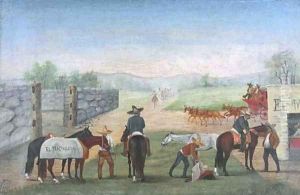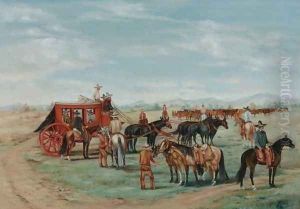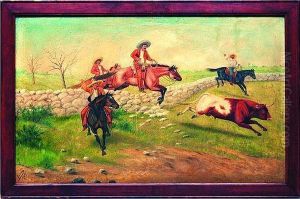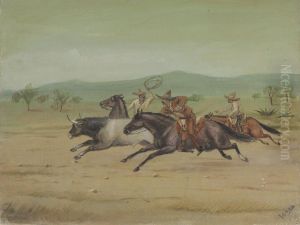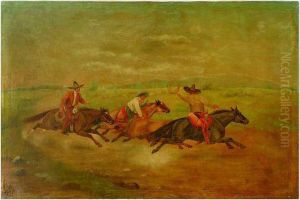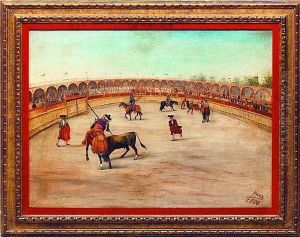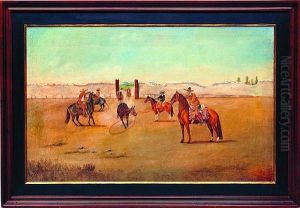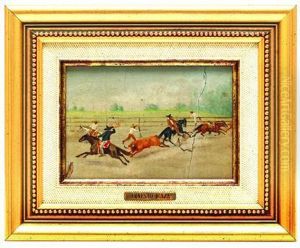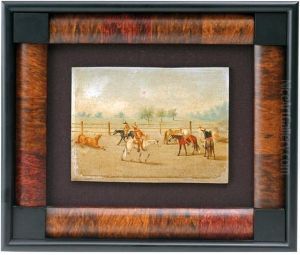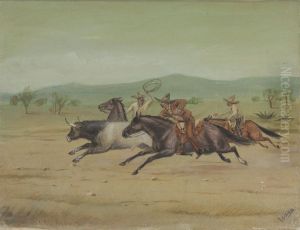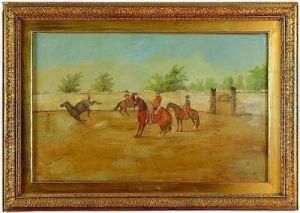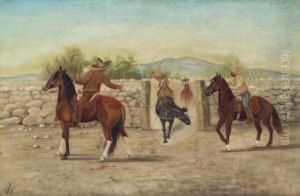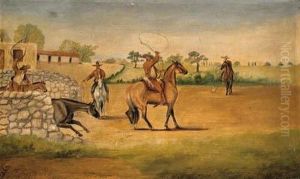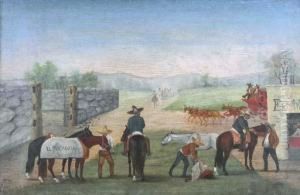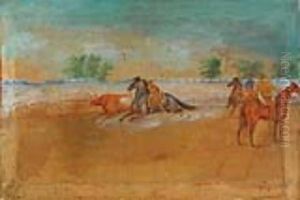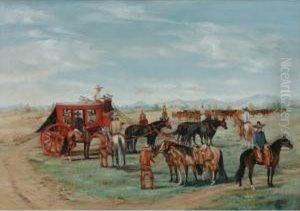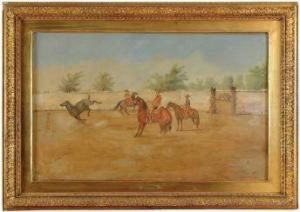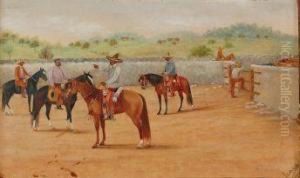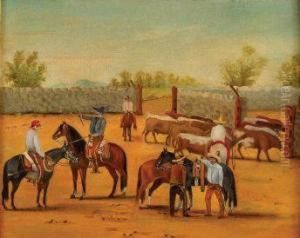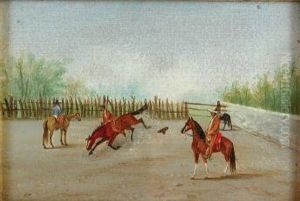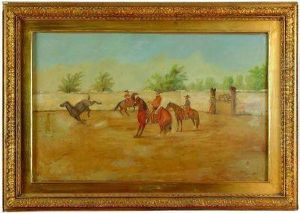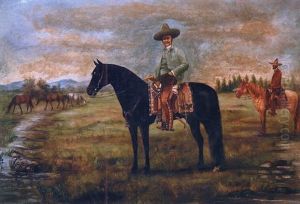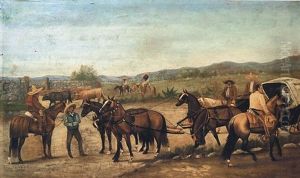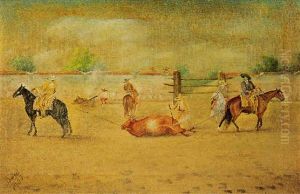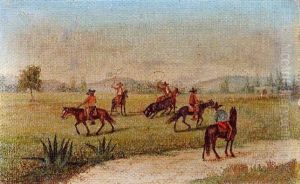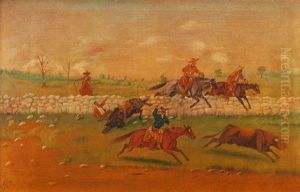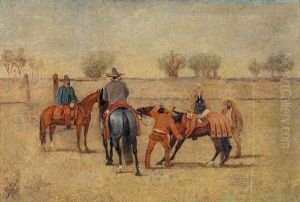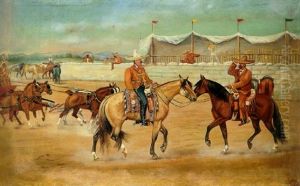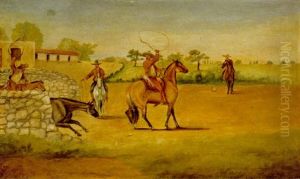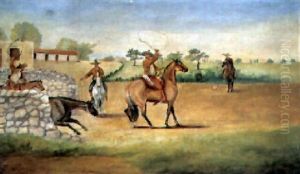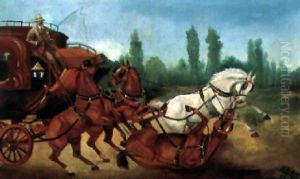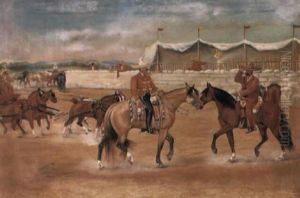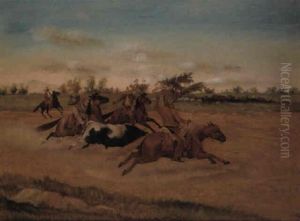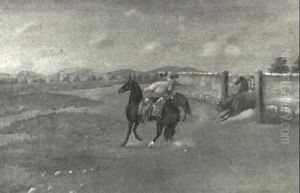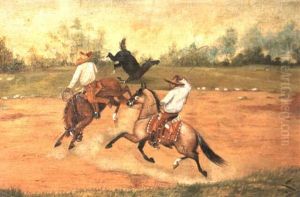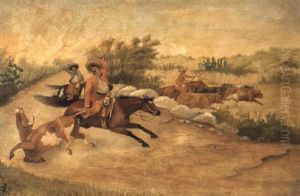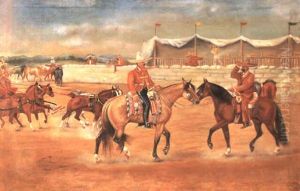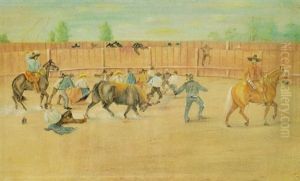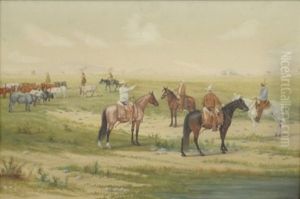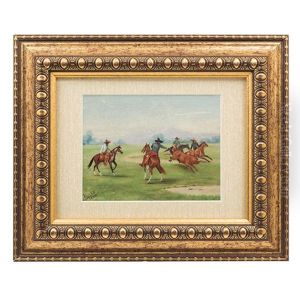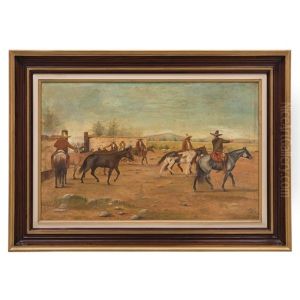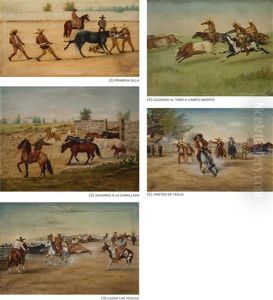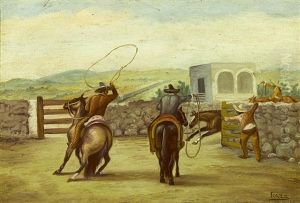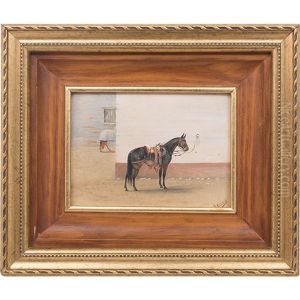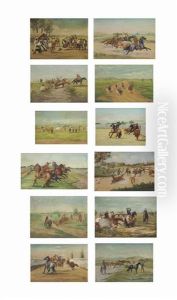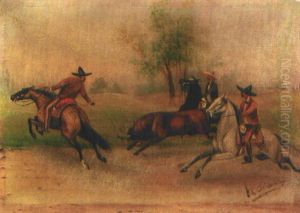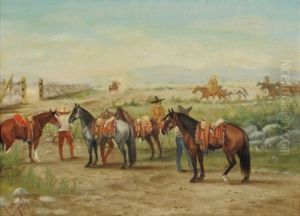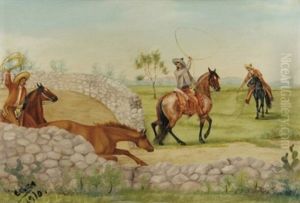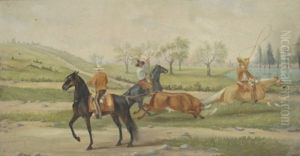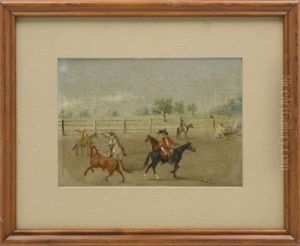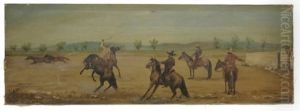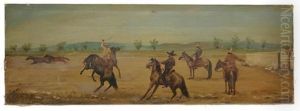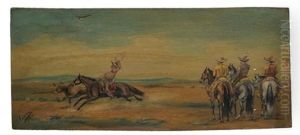Ernesto Icaza Paintings
Ernesto Icaza was a Mexican painter and engraver known for his contributions to Mexican art during the late 19th and early 20th centuries. Born in 1866 in Mexico City, Icaza came from a family with artistic inclinations, which likely influenced his interest in the arts from an early age.
His artistic career began in earnest when he decided to pursue his passion for art, despite the more traditional career paths that were common at the time. Icaza received his education at the prestigious Academy of San Carlos in Mexico City, where he studied under various prominent artists of the period. The Academy, being the first major art academy in the Americas, was a critical center for the development of Mexican artists and played a significant role in the evolution of Mexican art.
During his career, Icaza's style was primarily influenced by European art movements, such as Realism and Symbolism, which is evident in his detailed and often poignant portrayals of people and landscapes. However, he also incorporated elements that were distinctly Mexican, contributing to the burgeoning sense of national identity in Mexican arts.
One of the hallmarks of Icaza's work was his focus on everyday life, especially the lives of the lower classes and indigenous peoples of Mexico. He is noted for his sensitive approach to these subjects, often highlighting the struggles and injustices faced by these communities.
Ernesto Icaza was also involved in the intellectual and artistic circles of his time, contributing to the cultural dialogues that were shaping the identity of a modern Mexico. His engravings and illustrations became some of the iconic representations of Mexican culture and society during a period of significant change.
Icaza's legacy is not just in the works he left behind but also in the influence he had on subsequent generations of Mexican artists. He was part of the artistic movements that paved the way for the Mexican Muralism of the 1920s and 1930s, which would go on to have a profound impact on the country's visual arts.
Ernesto Icaza passed away in 1924, but his contribution to the Mexican art scene continues to be remembered and celebrated. His works can be found in various art collections and museums, serving as a testament to his artistic vision and the cultural heritage of Mexico.
